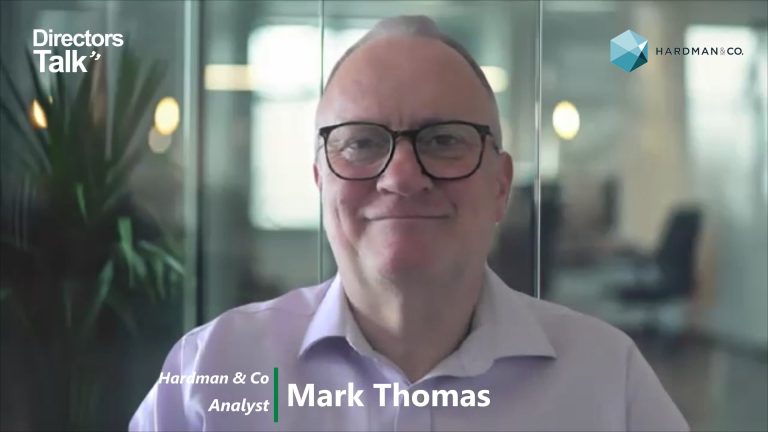Apax Global Alpha Ltd (LON:APAX) is the topic of conversation when Hardman & Co’s Analyst Mark Thomas caught up with DirectorsTalk for an exclusive interview.
Q1: Your recent report sits behind a disclaimer, what can you tell us about that?
A1: It is just the standard disclaimer that many investment companies have. In essence, for regulatory reasons, there are some countries, like the US, where the report should not be read. In the UK, because private equity (PE) is not a simple asset class, the report should be looked at only by professional/qualified investors.
Q2: You called your recent piece, ‘H’24: deal activity coming back strongly’, what can you tell us about it?
A2: The key messages from Apax Global Alpha’s 1H’24 results were i) a strong rebound in deal activity both for investments and exits (the regular announcements mean this trend was expected), ii) strong growth in investee company EBITDA growth (organic 12.6%, up from 12.2% in FY’23) ‒ widening margins reflecting the value added by Apax, iii) buybacks utilising the distribution pool started at end-June, and iv) continued diversification and liquidity benefits from the debt portfolio.
As noted in our July note ‘CM day: further proof of value added by Apax’, the stock of exit-able businesses is rebuilding. The as-expected interim dividend of 5.5p generates an annual yield of nearly 8%.
Q3:That’s quite a significant move. The NAV fell over the six months, what can you tell us about that and the outlook for it?
A3: The 1H’24 total NAV return was -1.4% and slightly more -3.3% constant currency. The fall was significantly driven by one investment, Vyaire which was written down when it went into liquidation with an impact of-2.9% alone, and also the continued drag from the listed holdings which saw a further 2.7% adverse impact. The former has been written off completely in the private equity portfolio and to a minimal level in the debt portfolio, while the latter now represents just 7% of NAV. The risk of these being a further drag is modest. Excluding them, the total NAV return would have been 4.2%, 2.4% constant currency.
Looking forward, we emphasise the value added to investee companies by Apax, which, over the medium term, has delivered significant operational and so valuation outperformance.
In the near term, the return to more normal deal activity is likely to see further uplifts and so NAV growth.
Q4: You made a point earlier about exits, which seem crucial here. Could you comment on deal activity and in particular the exits?
A4: Apax Global Alpha used the 2020/21 high valuations to exit a lot of its investments. Businesses ready for sale have been rebuilt form that early set of exits and now 37% of the portfolio is in harvesting phase versus just 13% at end-2022. That’s a near trebling of the proportion which is ready for sale in just two years. Uplifts on exits continue, 1H’24 was 11%) and we expect further exits to help the NAV grow. It is already feeding through to increased exit activity. The Apax Funds saw five realisations signed in 2Q’24 and post period-end.
Looking at the investment side, as buyers and sellers of companies come closer to each other on valuations, there has been increased activity there. The group expects to deploy about €75m on a look-through basis across four PE investments as well as portfolio company M&A. This is nearly as much as the whole FY’23 total of €93 million.
We explore the capital allocation policy, strong balance sheet and unique benefits from the debt portfolio, including liquidity, in our note.
Q5: Finally Mark, what can you tell me about the risks?
A5: There are always risks with investment. The key ones here are sentiment to costs, the cycle, valuation and over-commitment are sector issues. The Derived Investments portfolio generates income towards dividends, and has liquidity and capital benefits, but it complicates the story.








































